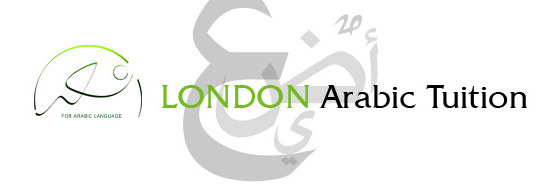Photo Credit: 30-minute Arabic Lesson in Nubian Village
Comparing the Arabic language to English
Arabic and English are two of the most popular languages on Earth. Their popularity is not based on their similarity, however. Both of these languages are very different in a number of significant ways.
How Arabic and English are Different
• Writing and Script
When you compare the way in which Arabic and English appear on the page, you will immediately be struck by the fact that they appear very different. English script reads from left to right, while Arabic script reads from right to left. The print has been the standard way of presenting English writing for centuries, and Arabic is written in a curvy and fluid script. When students are learning Arabic as a second language, it can take some practice for them to learn to differentiate between different letters.
In many cases, Arab speakers don’t write most of the verbs they use on the page. Instead, they write a type of shorthand that leaves the vowels out, trusting that the reader will insert them where they are needed to form the correct word.
An example of this abbreviated writing is the Arabic word, “maktab,” which means office. It is often written as “mktb.” Students who are trying to learn the language are faced with trying to infer which vowel should be used from the placement of the surrounding letters or the context of the sentence in which the word is being used.
• Consonant Sounds
There are marked differences between the two languages when it comes to consonants. English does not six distinct sounds that are present in Arabic and for this reason, a number of Arabic words are difficult to translate into English. A number of Arabic sounds are challenging for English speakers to pronounce because they rely on the speaker contracting his or her epiglottis. This region of the larynx is not usually used when speaking English.
• Vowel Sounds
In English, there are only five vowels (a, e, i, o, u). Together, they can combine to make 22 distinct sounds. For example, a word like “float” includes a vowel combination that makes a distinct vowel sound. It is different from the one in “fought” or “fat.”
The Arabic language has six regular vowels and two occasional ones, in the same way that the letter “y” acts like a vowel on occasion in English. These vowels only make a single sound each, which means that English has close to three times as many vowel sounds as Arabic.
Learning to speak English is quite challenging for native Arabic speakers, and many of them have difficulty distinguishing between similar sounds like “sought” and “sod.”
• Verb Tenses
The English language has a number of verb tenses that do not occur in Arabic. One of them is that Arabic does not have one that corresponds to the verb “to be” in the present tense in English. Many people who are learning to speak English as a second language and are native Arabic speakers will not use the conjugations, “am” and “our” when they are forming sentences. They may say something like, “Where they go?” instead of “Where are they going?”
The Arabic language also doesn’t have a present perfect tense, so there is no way for a person to say the sentence, “I have finished my meal” in that language. An Arabic speaker would say instead, “I finished my meal.”
Learn to Speak Arabic at London Arabic Tuition
Are you interested in learning to speak one of the Arabic dialects (Levantine, Gulf, Egyptian)? At London Arabic Tuition, we offer classes on an individual level or in small groups so that all students can get the individual attention they need.
All our instructors are native Arabic speakers. Students will be learning from experienced teachers who use a variety of materials to make learning interesting and a positive experience for all of our students. Our instructors are flexible in their teaching methods and are very patient with learners.
We have worked with people from all types of backgrounds, including university students, business people, bankers, UN workers, lawyers and diplomats. All of them have had one thing in common: the desire to learn Arabic.
Our proven methods have helped all these former students learn Arabic and if you are willing to put in the effort we can help you, too. Contact us today to learn more or to book your Arabic lessons.
If you wish to sign up for The Nassra Arabic Online Program, please click the link below
https://www.golearnarabiconline.com/




Very informative and useful posts, well-done!
kemboja
Yes, i need Arabic language, especially in order to read the Holy Quran!